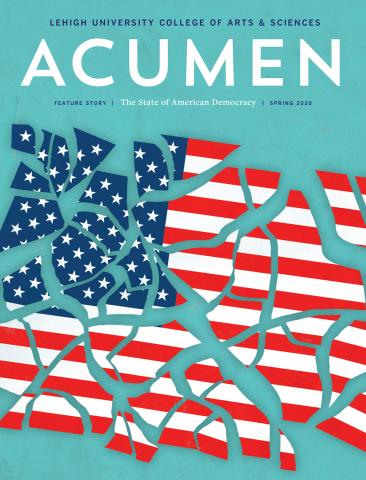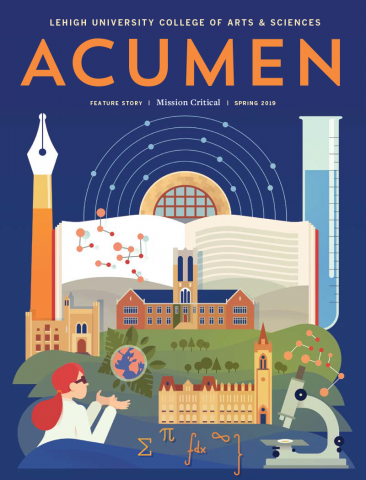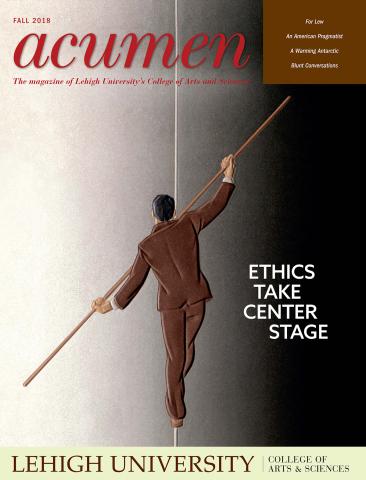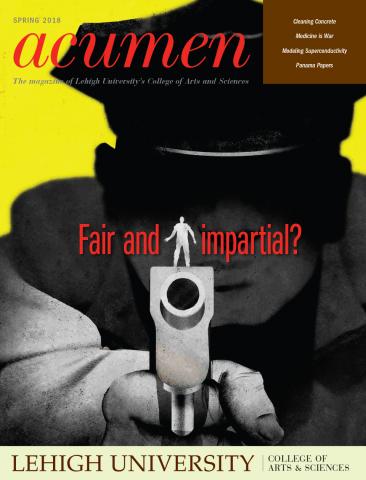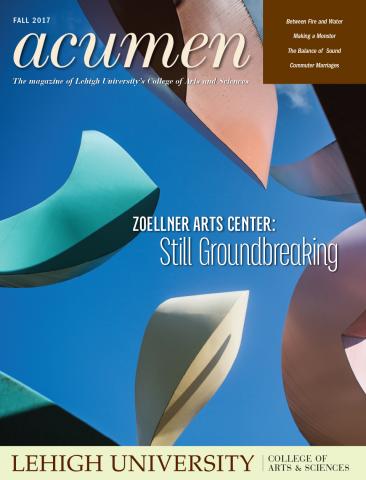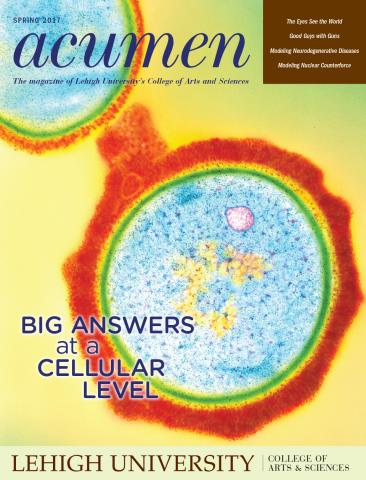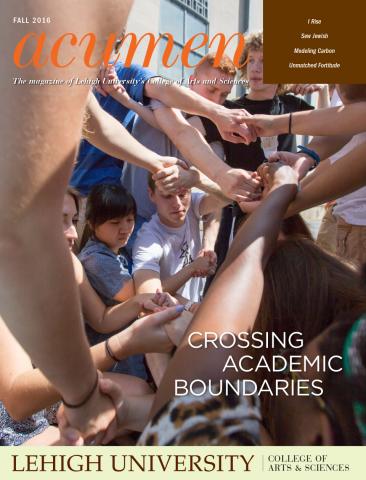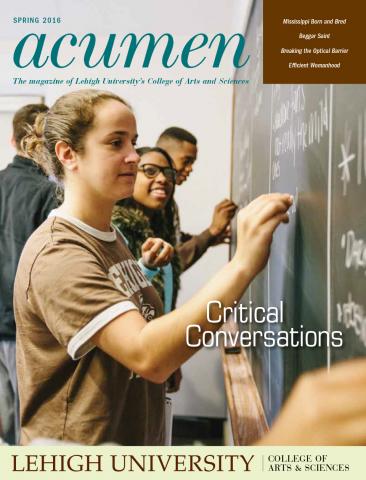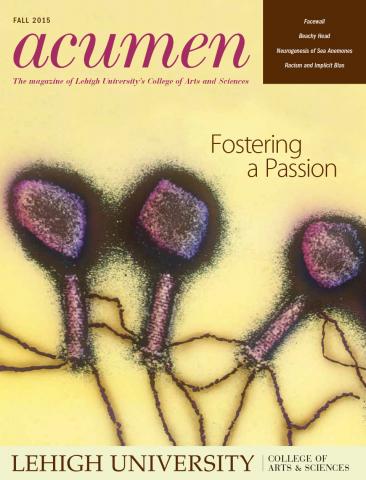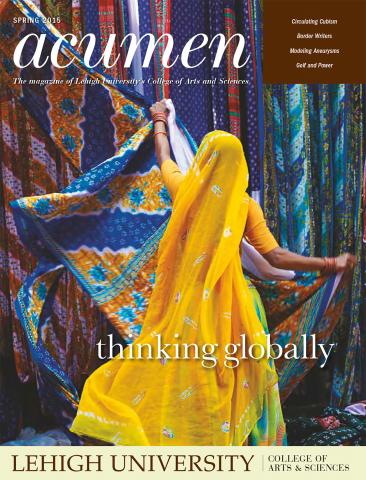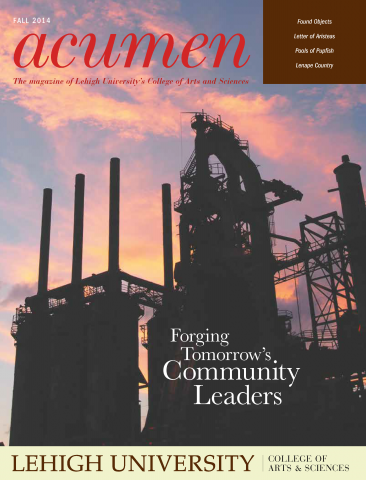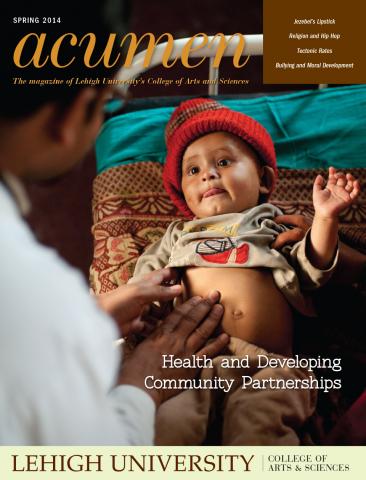
Lehigh’s Humanities Center sits modestly on a slope off West Packer Avenue. Notwithstanding its porch, tea selection and inspiration from the busts of Aristotle, Plato, Hippocrates and Homer, the center is more than a charming space—it is where creative sparks can fly from the intersection of disciplines.
As Humanities Center director, Suzanne Edwards, associate professor of English, tries to ignite those sparks as she builds a community engaged in understanding the human experience. Along the way, the center has become an incubator for cross-disciplinary collaborations that lead to courses, projects and research—in fact, anything is possible.
Edwards asks a lot of questions and encourages others to do the same. “How can the Humanities Center facilitate projects driven by the interests of those who work in the humanities?” She answers her own question:“Facilitating new conversations and communicating a clear vision of the enduring importance of the humanities for everyone.”
Today, advocating for the humanities is crucial. This fall, the Humanities Center steering committee, which includes members of Lehigh’s arts and humanities departments (art, architecture and design, English, history, modern languages and literatures, music, philosophy, religion studies and theatre), wrote a report detailing the value of these programs to Lehigh’s educational mission and identifying areas for growth. The arts and humanities faculty saw the need for the document, given national patterns of declining course enrollments in these fields and public uncertainty about the value of a liberal arts education.
The arts and humanities, says Edwards, “prepare students for a future we never thought of,” borrowing a line from Provost Patrick Farrell and reflecting President John Simon’s vision for Lehigh. By training students to see problems from other people’s perspectives, humanities courses lay the groundwork for effective collaboration and communication. The value of the humanities to employers is clear. The American Association of Colleges and Universities and American Association of University Professors reported last spring that employers “strenuously argue that liberal arts majors make great tech-sector workers precisely because they are trained to think critically and creatively and to adapt to unforeseen circumstances.”
Edwards, who has directed the center for three years, explores such interdisciplinary connections in her courses and publications on medieval literature. Her scholarship shows how the study of the distant past can help us think in new ways about ethics and justice in the present. That makes her a strong advocate for a center that considers different understandings of the human experience.
“You can see how my research interests made this job interesting to me,” she says of directing the center. “Learning from the past informs my approach to the humanities. The past is an important tool for understanding the present, for learning how our present might look from the outside. The past trains us to see the present that we take for granted with a more critical eye.”
Edwards’ own intellectual history includes an introduction to her field in an undergraduate English class at Amherst College, where she studied English and voice performance—two majors she sees as ripe for collaboration.
“In literature, texts convey meaning,” she says. “Singing brings texts to life as an interpretive act.”
She earned her master’s degree and Ph.D. at the University of Chicago. Last spring, she taught a class on Canterbury Tales, which included engineering and business majors who “embraced the challenge of reading Middle English,” as she once did.
Although students could write a traditional research paper, Edwards also encouraged them to develop a creative adaptation of one of the tales. Delighted with the results, she describes how an economics major explored Chaucer’s literary representation of the shift from a feudal to a mercantile economy. Another student rewrote The Clerk’s Tale as a contemporary feminist fairy tale, and another rewrote The Pardoner’s Tale as a text message exchange. A student who was a professional dancer choreographed and performed a ballet based on a tale.
“The focus of the course was literary adaptation,” Edwards explains. “Chaucer himself was reimagining well-known texts, and contemporary artists have adapted the Canterbury Tales into a wide range of languages and mediums. As we saw, the arts and humanities amplify each other to create richer understandings of the human experience.”
While Edwards makes the point that so many have contributed to the success of the Humanities Center, they, in turn, applaud her leadership.
Amardeep Singh, associate professor of English, has called Edwards a “driving force in making the Humanities Center the heart and soul of humanities research and teaching at Lehigh.” Under her leadership, he says, the arts and humanities faculty has rallied around a plan to reverse a national trend of declining enrollments.
“She consulted all of the different humanities departments, heard their ideas and concerns, and used that to put together a set of ideas we can all use to help strengthen our respective majors,” Singh says.
The center has helped bring new faculty into the broader humanities and arts communities.
“It connects faculty from multiple departments and offers them regular opportunities for dialogue, collaboration and communication across disciplines,” says Nicholas Sawicki, associate professor of art history and member of the center’s advisory and executive committees. “That’s tremendously important on a large campus like Lehigh’s, where faculty members in different departments are spread out and don’t necessarily see one another on a frequent basis.”
Mary Foltz, associate professor of English and member of the center’s advisory board, appreciates Edwards’ multi-pronged approach—“sharing information and processes, bringing artists and practitioners together, building on each other’s programs and developing collaborative projects—drawing on the strength of the greater community.”
She cites the seminars, for those who “want to take a deep dive” into a topic. Foltz and Seth Moglen, associate professor of English, led a one-year seminar in Public Humanities and Public Art.
“Too often, scholarship faces inward, when some subjects, like music, need a public audience,” she says. “The seminar allowed us to discuss broadening the scope of our work.”
Public-facing humanities projects have become a new area of focus for the center, as part of its advocacy mission. Last spring, the center hosted The Northeastern Public Humanities Consortium, bringing visiting scholars to Lehigh. And last fall, center staff and students helped dedicate a plaque at the Bethlehem Public Library celebrating Hilda H.D. Doolittle, a poet born in 1886 in Bethlehem.
Edwards is excited about projects and courses that engage little-known documents and histories, like the Steelworkers’ Archive, and collaborations across disciplines.
“The Humanities Center is where people can take the next step,” she says, adding that the center is “a place where we can bring new possibilities and long histories together.”
And, it is a place that can revive interest in the humanities among incoming and current students, especially those in other majors.
“Students should take humanities courses—and not just the courses that speak to what they already know,” says Edwards, “but the courses that will ask them to take risks and surprise them.”






















